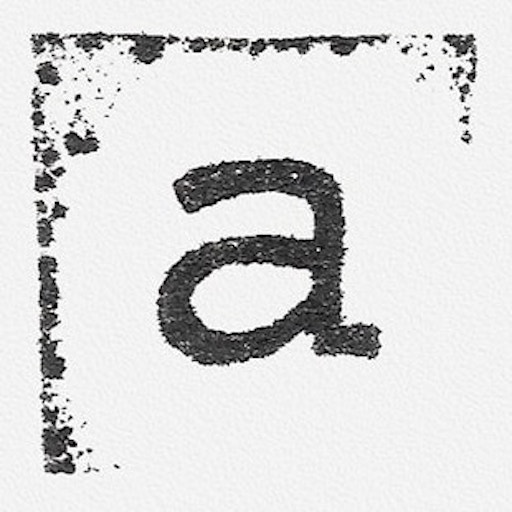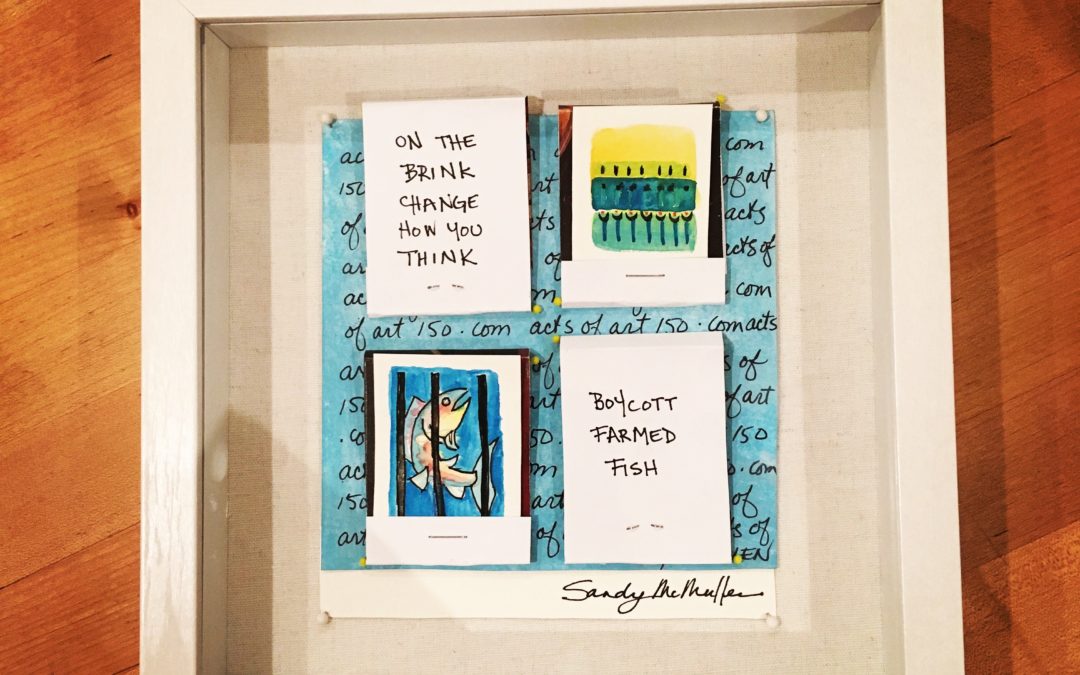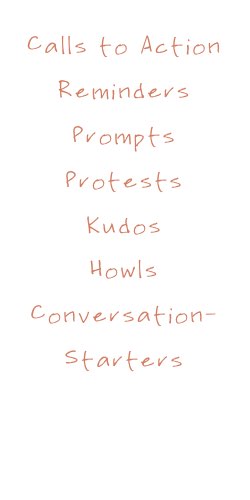This is my other submission to Button Factory Arts 25th anniversary juried show. The call for entry invited artists who are increasingly feeling the need to engage and speak up through activist and social art practices. My Matchbook Art seemed to be a fit for this invitation even if on a small scale. The paintings are tiny but I am prolific in making them and passing them out to engage people in conversations.
As with my previous piece this one also has 2 messages that look at the big picture as well as one more specific issue of concern.
We spend the winters of Vancouver island. You cannot be in the Pacific North without understanding the role that salmon play environmentally and culturally. The debate around farmed fish is polarized with economic concerns being pitted against environmental concerns. There is also the issue of sea lice infesting wild salmon with some schools of thought putting the blame squarely on farmed fish.
My daughter Jen had summer work experiences through Frontier College living and working alongside migrant workers on factory farms. Her descriptions of how bad these farming conditions (for produce) were led me to believe that factory farms for poultry and livestock were equally unhealthy ways to sustain humans.
It is easy for me to follow this thread to seeing how farmed fish practices are polluting our oceans and rivers and harming wild salmon.
I take action on a small level to only purchase wild salmon or to eat fish from a source that I know and trust.
I totally understand that this won’t save the planet but I firmly believe that every small action we take is accumulative. Our many small shifts add up to putting pressure on corporations and organization to pay attention to changing their practices and policies.
Through another lens we need to shift how we think about growth for the sake of growth. This way of being in the world has contributed to the crisis situation we find ourselves in today.
Are we prepared to really take on a complete reframing of success in government and business?
Federico Demara posits:
Economic growth is presented as the panacea that can solve any of the world’s problems: poverty, inequality, sustainability, you name it. Left-wing and right-wing policies only differ on how to achieve it.
However, there is an uncomfortable scientific truth that has to be faced: economic growth is environmentally unsustainable. Moreover, beyond a certain threshold already surpassed by EU countries, socially it isn’t necessary. The central question then becomes: how can we manage an economy without growth?
I don’t have the answer for this question but I firmly believe that these are the kinds of questions we need to be considering.



Recent Comments